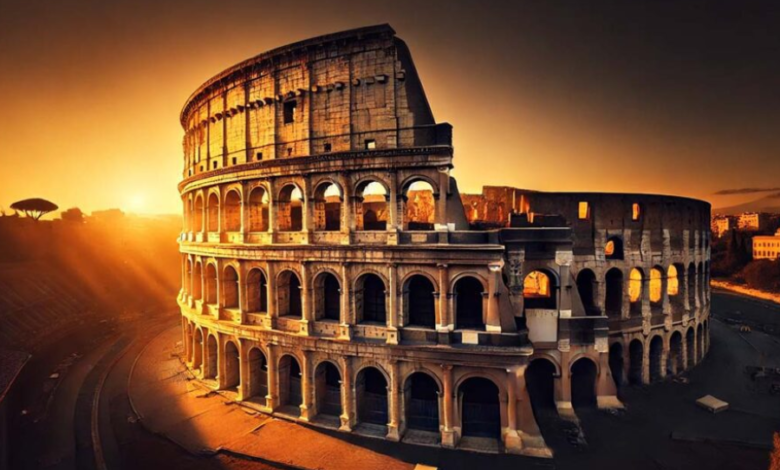Exploring the Charm of Antiquità: A Journey Through Timeless Artifacts

Antiquità, the vast period of history that predates the Middle Ages, formed the bedrock of the modern world. Stretching from the dawn of recorded history to the fall of the Roman Empire in the 5th century AD, this era witnessed the rise and fall of influential civilizations, groundbreaking advancements in arts and sciences, and the emergence of philosophical and spiritual ideas that continue to influence contemporary society. In this examination of antiquità, we will explore the key civilizations that defined this period, their remarkable contributions, and the enduring legacies they left behind.
The Cradle of Civilization: Mesopotamia and Egypt
Mesopotamia, located between the Tigris and Euphrates rivers, is often regarded as the cradle of civilization. Around 3500 BC, the Sumerians established one of the world’s first complex societies. They are credited with a variety of innovations, including the invention of writing (cuneiform), the wheel, and the development of the first urban centers. Their legal codes, such as the Code of Ur-Nammu and the later Babylonian Code of Hammurabi, served as foundational models for modern legal systems.
Meanwhile, ancient Egypt thrived along the Nile River, creating one of the most iconic civilizations in antiquità. Known for monumental achievements such as the pyramids of Giza and the temples at Karnak and Luxor, the Egyptians also made strides in mathematics, medicine, and engineering. Their practice of mummification, along with an advanced understanding of human anatomy, highlighted their expertise. The visual language of Egyptian art and their use of hieroglyphics provide rich insights into their culture and religious beliefs.
The Dawn of Philosophy: Ancient Greece
Ancient Greece is perhaps the most influential civilization of antiquità, renowned for its contributions to philosophy, science, and the arts. The Greek city-states, particularly Athens, were centers of intellectual development. Philosophers like Socrates, Plato, and Aristotle laid the groundwork for Western thought, introducing concepts such as Socratic questioning, Platonic ideals, and Aristotelian logic, which remain pillars of modern philosophy and education.
In addition to philosophy, the Greeks excelled in mathematics and science. Figures like Pythagoras, Euclid, and Archimedes made discoveries that are still foundational to these fields today. Greek advances in astronomy, including Aristarchus’ heliocentric model, foreshadowed later scientific breakthroughs.
Greek culture also celebrated human achievement through literature, theater, and art. The epic poems of Homer, the tragedies of Sophocles and Euripides, and the historical writings of Herodotus and Thucydides have profoundly influenced global literary traditions. Their ideals of beauty and proportion, evident in Greek sculpture and architecture, set standards that inspired art for centuries.
The Rise of Rome: The Might of the Roman Empire
The rise of Rome marked the zenith of ancient civilization, with the Roman Empire dominating the Mediterranean world for centuries. Founded in 753 BC, Rome evolved from a small city-state into a vast empire that extended across Europe, North Africa, and the Near East. The Roman Republic, and later the Empire, introduced political systems that continue to influence governance today.
Roman law, codified in the Twelve Tables and later the Corpus Juris Civilis by Emperor Justinian, laid the foundation for modern legal frameworks. The Romans were exceptional builders and engineers, creating lasting infrastructure such as aqueducts, roads, and monumental structures like the Colosseum. Their innovations in construction, particularly the use of concrete, allowed them to build enduring public works that have stood the test of time.
Culturally, Rome absorbed and adapted the influences of the civilizations it conquered, particularly Greece. Roman literature, art, and architecture were deeply inspired by Greek traditions, though they developed distinct styles. The Roman poet Virgil, for instance, created the Aeneid, an epic that, while drawing on Homeric themes, uniquely reflects Roman ideals.
The Eastern Giants: China and India
While Mediterranean civilizations often dominate discussions of antiquità, significant developments were also unfolding in the Far East. Ancient China, under various dynasties, made profound contributions to civilization. The Shang Dynasty (c. 1600–1046 BC) saw the invention of Chinese writing, bronze casting, and early religious practices.
The Zhou Dynasty (1046–256 BC) introduced the Mandate of Heaven, a concept that justified the ruler’s authority as divinely sanctioned. This period also marked the rise of Chinese philosophical thought, with Confucianism and Daoism offering deep insights into ethics, governance, and the natural world. The Qin Dynasty (221–206 BC) unified China, standardized writing and currency, and began construction of the Great Wall.
In India, the Indus Valley Civilization (c. 3300–1300 BC) represented one of the earliest urban cultures, known for advanced city planning and intricate drainage systems. The Vedic period (c. 1500–500 BC) laid the spiritual and social foundations for Hinduism and shaped the structure of Indian society for centuries.
The Maurya (c. 322–185 BC) and Gupta (c. 320–550 AD) Empires marked high points in Indian history. Under Emperor Ashoka, the Mauryan Empire embraced Buddhism, spreading its teachings across Asia. The Gupta Empire is often referred to as the “Golden Age” of India, marked by remarkable achievements in science, mathematics, astronomy, and literature.
The Enduring Legacies of Antiquità
The legacies of antiquità remain deeply embedded in the modern world. The political ideas of democracy and republicanism, first practiced in Athens and Rome, continue to shape modern governance. The philosophical inquiries of the Greeks laid the intellectual foundation for Western thought, while Roman law remains the basis for legal systems in many countries.
Scientific and technological advancements from ancient civilizations laid the groundwork for modern disciplines. Greek and Indian mathematical innovations, Roman engineering feats, and Chinese astronomical observations are foundational to the progress we see today.
Culturally, the artistic and literary accomplishments of antiquità continue to inspire. The epics of Homer, the tragedies of Sophocles, and Virgil’s poetry remain essential to the global literary canon. The architectural wonders of Egypt, Greece, and Rome still stand as enduring symbols of human creativity and ingenuity.
FAQs:
- What is Antiquità? Antiquità refers to the period of history that predates the Middle Ages, particularly the ancient civilizations of Mesopotamia, Egypt, Greece, Rome, China, and India, which laid the foundation for modern society.
- Which civilizations are considered part of Antiquità? Key civilizations of Antiquità include Mesopotamia, Egypt, Greece, Rome, China, and India, each contributing significantly to various fields such as philosophy, science, engineering, and art.
- What are the main contributions of Ancient Greece? Ancient Greece is known for its foundational contributions to philosophy, science, literature, and art. Philosophers like Socrates, Plato, and Aristotle shaped Western thought, while Greeks made advances in mathematics, astronomy, and the arts.
- How did Rome influence modern governance? Roman contributions to law, governance, and infrastructure had a lasting impact on modern political systems. Roman law, especially the Twelve Tables, is the basis for many legal systems today, while Roman engineering feats like roads and aqueducts set standards in infrastructure.
- What legacies have Ancient China and India left behind? Ancient China and India contributed foundational knowledge in philosophy, mathematics, astronomy, and engineering. China’s invention of writing and the Great Wall, alongside India’s advancements in mathematics and the spread of Buddhism, remain influential.
Facts:
- The Sumerians, in Mesopotamia, created one of the earliest forms of writing, cuneiform, around 3500 BC.
- The pyramids of Egypt, including the Great Pyramid of Giza, were among the greatest architectural feats of antiquity and still stand as symbols of ancient engineering.
- Greek philosophy, particularly the ideas of Socrates, Plato, and Aristotle, forms the foundation of Western philosophical thought.
- The Romans built an extensive network of roads, aqueducts, and monumental structures that still influence modern architecture and engineering.
- The Gupta Empire of India (c. 320–550 AD) is considered the “Golden Age” of India due to remarkable achievements in science, mathematics, and astronomy.
Summary:
Antiquità represents a pivotal period in human history, encompassing the ancient civilizations of Mesopotamia, Egypt, Greece, Rome, China, and India. These cultures made profound contributions to philosophy, law, science, engineering, and the arts, laying the foundation for modern society. From the invention of writing and legal codes in Mesopotamia to the architectural marvels of Egypt, the philosophical breakthroughs of Greece, and the engineering feats of Rome, the legacies of antiquità continue to shape our world today. The enduring influence of these ancient civilizations is evident in governance systems, technological advancements, and cultural achievements that continue to inspire future generations.
Find everything you need, from products to services, at Allfindup.co.uk.



